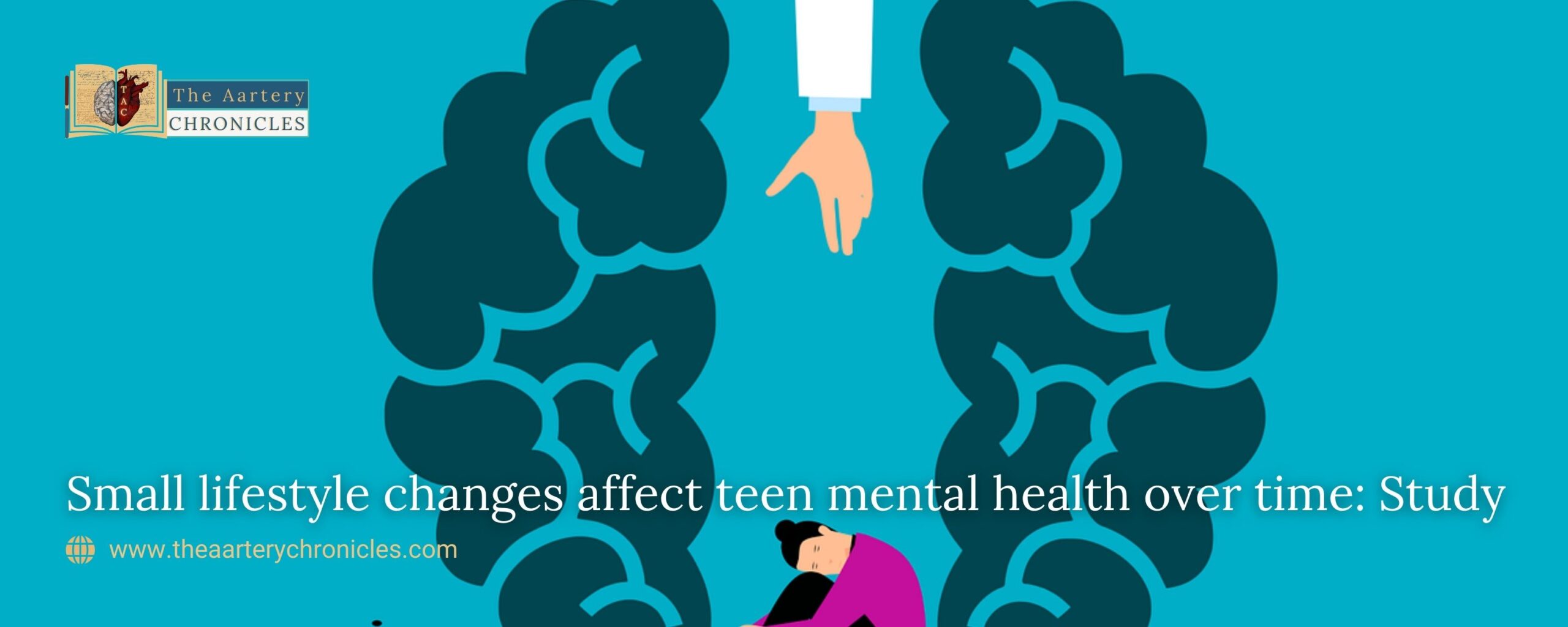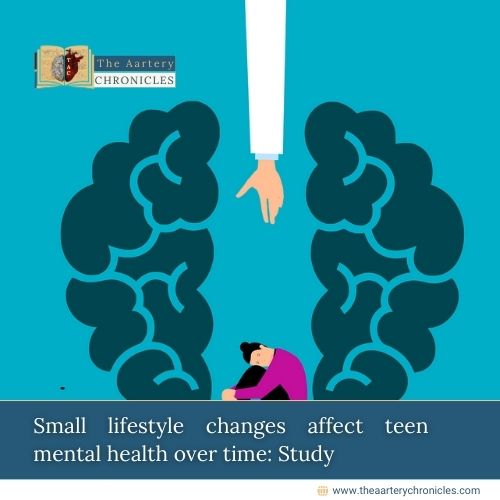
Small lifestyle changes affect teen mental health over time: Study
Recent headlines and policy discussions may suggest that screen time is the primary lifestyle behaviour affecting teen well-being. However, with young people facing increasing mental health challenges, it’s important to consider all lifestyle factors that play a role.
Research Findings
The research, recently published, tracked Australian high school students from 71 schools across New South Wales, Queensland, and Western Australia. The study found that improvements in sleep, fruit and vegetable intake, and exercise were linked to small but significant improvements in mental health. Conversely, unhealthy behaviours like increased screen time, junk food consumption, alcohol use, and tobacco use were associated with poorer mental health outcomes
Comprehensive Study of Adolescent Lifestyles
The study involved over 4,400 Australian high school students and examined a range of lifestyle behaviours:
- Sleep
- Moderate-to-vigorous physical activity
- Sedentary recreational screen time
- Fruit and vegetable intake, junk food and sugary drink consumption
- Alcohol use
- Smoking
In Year 7 (ages 12-13), students reported their levels of these lifestyle behaviours and their psychological distress, using a recognized measurement scale. The study then tracked changes in these behaviours and psychological distress levels until Year 10 (ages 15-16). Importantly, the analysis accounted for the initial levels of psychological distress and lifestyle behaviours in Year 7, allowing researchers to assess the average benefits associated with behaviour changes.
Key Findings
The research indicated that increases in healthy behaviours over time were associated with lower psychological distress, while increases in health-risk behaviours were linked to higher psychological distress.
Specific Observations
- Sleep: Each additional hour of sleep per night was associated with a 9% reduction in psychological distress.
- Physical Activity: Each additional day of 60 minutes of moderate-to-vigorous physical activity per week was linked to a 3% reduction in psychological distress.
- Fruit and Vegetable Intake: Each additional daily serving of fruit or vegetables was linked to a 4% reduction in psychological distress.
- Screen Time: Each additional hour of screen time was associated with a 2% increase in psychological distress.
- Junk Food and Sugary Drinks: Each additional unit increase in junk food or sugary drink consumption was linked to a 2% increase in psychological distress.
- Alcohol and Smoking: Switching from not drinking or smoking in Year 7 to drinking or smoking in Year 10 was associated with a 17% and 36% increase in psychological distress, respectively.
Limitations and Considerations
- The research cannot conclude to link changes in living behaviour to changes in distress.
- It also does not account for changes in students’ circumstances, such as home life or relationships.
- Additionally, the potential impact of COVID-19 during the study period should be considered.
However, longitudinal design and structured analysis provide valuable insights into the relationship between lifestyle behaviours and mental health over time.
Practical Implications for Teens and Parents
National guidelines for lifestyle behaviours set targets based on optimal health goals. However, these guidelines may seem unattainable for many teens.
- The majority of research participants failed to fulfil the requirements for physical activity, sleep, screen time, and vegetable consumption.
- The research shows that even small lifestyle changes can make a difference. Simple adjustments like getting an extra hour of sleep each night, eating one more serving of fruit or vegetables each day, reducing screen time by one hour, or adding an extra day of physical activity per week are linked to improvements in mental health. Combining changes in multiple areas may lead to even greater benefits.
- Parents play a crucial role in shaping their teens’ lifestyle behaviours, even into adolescence. While expense and time can be barriers, any steps parents can take within their means are beneficial. For instance, modelling healthy social media use, making affordable grocery changes to improve nutrition, introducing set bedtimes, and providing information about alcohol, tobacco, and vaping can all help.
Comprehensive Approaches to Adolescent Mental Health: Beyond Lifestyle Changes
While lifestyle changes can support better adolescent mental health, they are only one part of the solution.
- Addressing the youth mental health crisis requires efforts at the school, community, and policy levels to create a supportive environment for youth mental health.
- Young individuals who are battling with their mental health may require professional treatment, which parents and caregivers may assist them with.
- Teenagers and young people can also reach out to organizations like ReachOut or Kids Helpline for resources and support.
Source: Inputs from various media Sources










